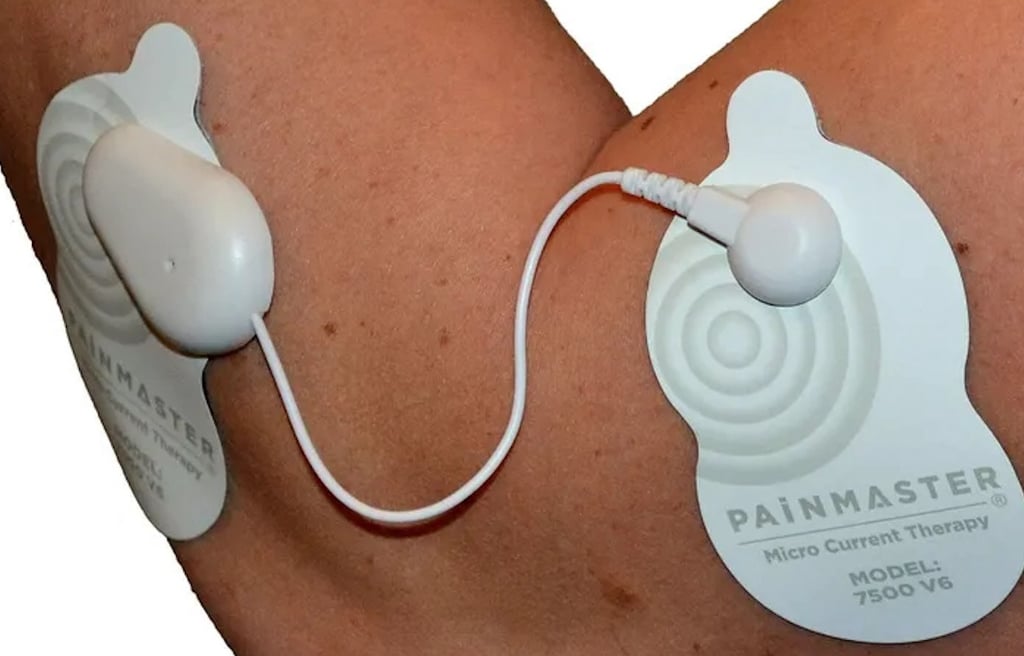THE POTENTIAL OF MICROCURRENT THERAPY
A systematic review looking at the use of Microcurrent Therapy for musculoskeletal pain looks at its potential.
In September 2021, researchers Hirotaka Iijima and Masaki Takahashi in their article Microcurrent Therapy as a Therapeutic Modality for Musculoskeletal Pain: A Systematic Review Accelerating the Translation From Clinical Trials to Patient Care delved into the world of musculoskeletal pain management, unveiling a potentially groundbreaking therapeutic modality
The Potential of Microcurrent Therapy


Published in the Archives of Rehabilitation Research and Clinical Translation, this systematic review offered an intriguing peek into the possibilities of a novel approach to pain relief. Systematic reviews are considered the gold standard in medical research, as they carry out a close analysis of published articles, synthesising their evidence and minimising bias. This article explores their findings and decipher the implications for individuals grappling with musculoskeletal pain.
Cracking the Pain Management Code
Musculoskeletal pain, ranging from backaches to joint discomfort, affects millions worldwide, significantly impacting the quality of life. Traditional treatments often include medication, physical therapy, or surgery, each with its set of limitations. MCT is a non-invasive technique harnessing low-level electrical currents (around 1mA) that have the potential to alleviate pain and promote healing. The concept is captivating, as it mimics the body's natural electrical activity, stimulating cellular repair and pain relief.
The Highlights of Iijima and Takahashi's Research
Iijima and Takahashi's systematic review serves as a beacon of hope for individuals seeking alternative methods of pain management. By meticulously examining existing clinical trials, the researchers unearthed promising outcomes associated with MCT. Some studies suggested notable pain reduction and improved mobility, hinting at the therapy's potential effectiveness.
Navigating the Caveats
While the findings are promising, some studies analysed in the review had limitations, such as small sample sizes and differing methodologies. These nuances make it challenging to provide a one-size-fits-all solution for musculoskeletal pain sufferers. Additionally, individual responses to MCT could vary, emphasising the importance of personalised treatment plans.
What Does This Mean for You?
If you're battling musculoskeletal pain, the concept of MCT might sound intriguing. The researchers found some evidence that this form of therapy seems to work well in shoulder pain and knee pain. There is still much research to do in order to look at the benefits of other musculoskeletal pains, but so far the findings seem promising. Of course, we are aware that what works for one person might not work for another, but the possibility of trialling a Pain relief method that doesn’t appear to have serious adverse effects may be something worth considering. Of all the studies that Iijima and Takahashi looked at, only one person dropped out of one study, and that was because of tingling in the feet the night after the first treatment.
The Future of Pain Management
Iijima and Takahashi's research opens a door to a new frontier in pain management. While MCT isn't a definitive cure for everybody, it certainly poses as a potential ally in the battle against musculoskeletal pain. As further research unfolds and technology advances, we may witness a shift in how we perceive and treat pain, offering hope to those who have long suffered in silence.
Conclusion
In the realm of pain management, every discovery, no matter how incremental, holds the promise of a better quality of life. The research conducted by Iijima and Takahashi shines a light on an innovative path, showcasing the potential of MCT. As we move forward, it's crucial to approach these findings with optimism, tempered by critical evaluation and personalised healthcare advice. For now, the future seems a little brighter for those seeking relief from the grips of musculoskeletal pain.
PS - If you are interested in Microcurrent Therapy, you can read more about PainMaster MCT here.
SUBSCRIBE
Subscribe for updates on latest posts and to follow what is happening in the home of Target Pain.


